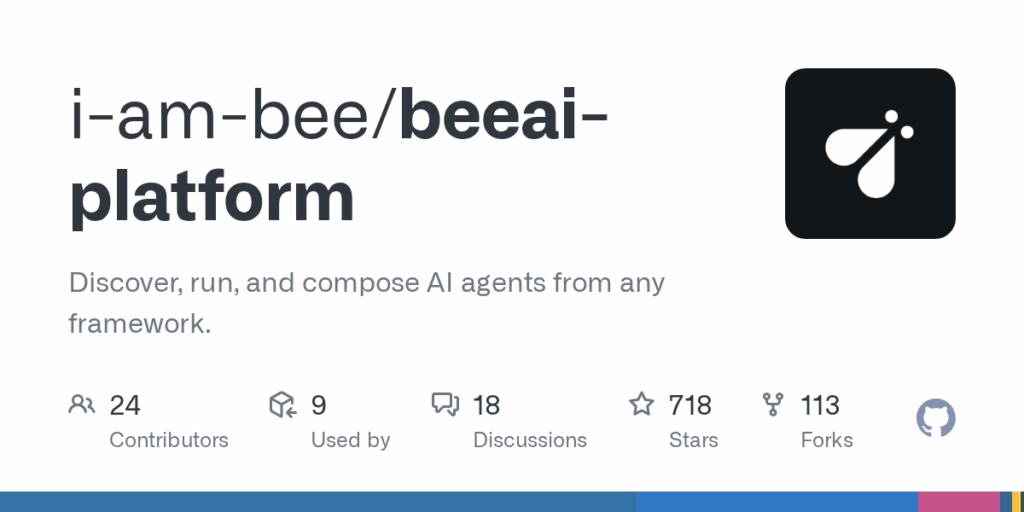beeai platform
Basic Information
BeeAI Platform is an open-source system to discover, run, package, and share AI agents across different frameworks. It implements the Agent Communication Protocol to standardize agent interfaces and reduce framework fragmentation, and it is developed within the Linux Foundation AI & Data ecosystem. The repo provides tooling for individual developers to experiment locally and for teams to deploy a centralized instance, including a CLI and a simplified web UI for end users. BeeAI emphasizes containerized agents with defined resource limits, a searchable catalog of agents, and flexibility to connect to any LLM provider. Overall the project aims to bridge disparate agent ecosystems, simplify deployment and discovery, and provide a consistent interface for building and operating agents.








